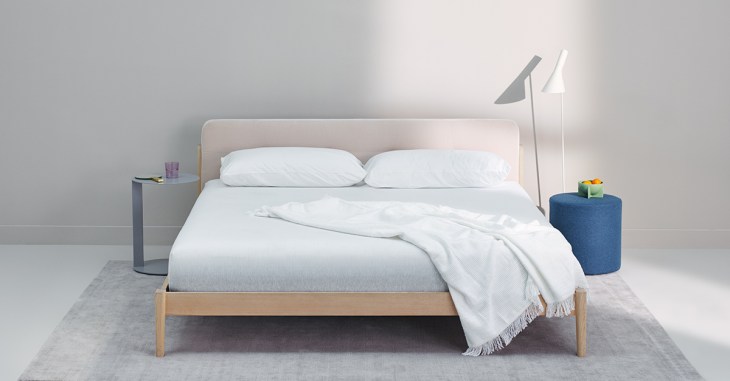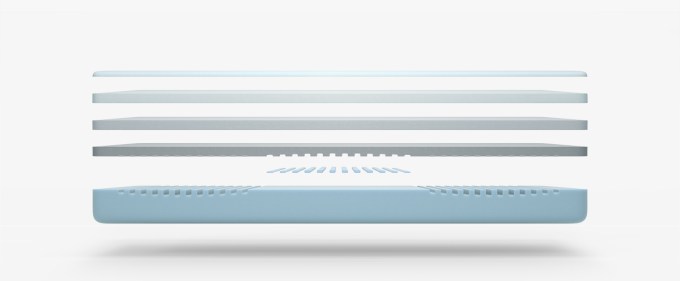Casper is unveiling a new mattress that co-founder and Chief Product Officer Jeff Chapin said responds to your body’s shape, combining the best elements of soft and firm mattresses.
The Wave mattress comes with a higher price tag, starting at $1,000 for a twin and extending up to $1,850 for a queen and $2,250 for a California king. (The price for Casper’s regular mattress ranges from $550 to $1,150, so the Wave costs nearly twice as much.)
The new mattress was designed at Casper’s product lab in San Francisco. Chapin said his team started thinking about creating a new product before last year’s launch in Germany: “The German market really likes a firm mattress — much firmer than the U.S. mattress.” But it wasn’t going to be enough to simply firm up Casper’s existing product: “When things get firmer, you have to pay more attention to ergonomics.”
In fact, Chapin said that as Casper explored the differences between soft and firm mattresses, he concluded, “Everybody wants the same thing” — namely, a mattress that’s comfortable while providing proper ergonomic support.
Ultimately, this led to a design that combines flo foam, latex foam, memory foam, high resiliency foam and a contour cut support layer. If (like me) you haven’t studied the properties of different mattress materials, Chapin said the end result is a mattress that combines “soft plushness and this really supportive core.”
He predicted that this approach will be particularly important to customers willing to pay a premium for good sleep, or those who are concerned about ergonomics due to issues like back pain.
I swung by Casper’s New York City offices to see the Wave for myself. I only lay on it for a couple of minutes, so I can’t really comment on the ergonomic support, but I can say that Chapin’s description of the Wave’s “liquid-y feeling” was accurate — it feels much softer than the regular Casper mattress that I have at home.
And if you buy the Wave, it will be delivered to you like a regular Casper mattress, with a 100-day trial period to test it out for yourself.
During my conversation with Chapin, I brought up the question of how much Casper is differentiated by its mattresses, as opposed to its business model and marketing. Chapin replied that when people see Casper as a company that’s all about marketing, “It hurts my soul.”
Still, he understands why you might feel that way: “People respond to changes from the status quo,” and Casper’s method of selling mattresses online, delivering them in compressed form and giving customers an extended trial period represented a big change. It’s harder to create a mattress that’s “300 percent different than what’s out there.”
“From an outward-facing perspective, it’s much more visible to see cool marketing campaigns and branding efforts — that’s obvious and easy to get,” Chapin acknowledged. “But we spend a ridiculous amount of time understanding raw materials, engineering methods, ergonomics. … We totally believe in the product.”

